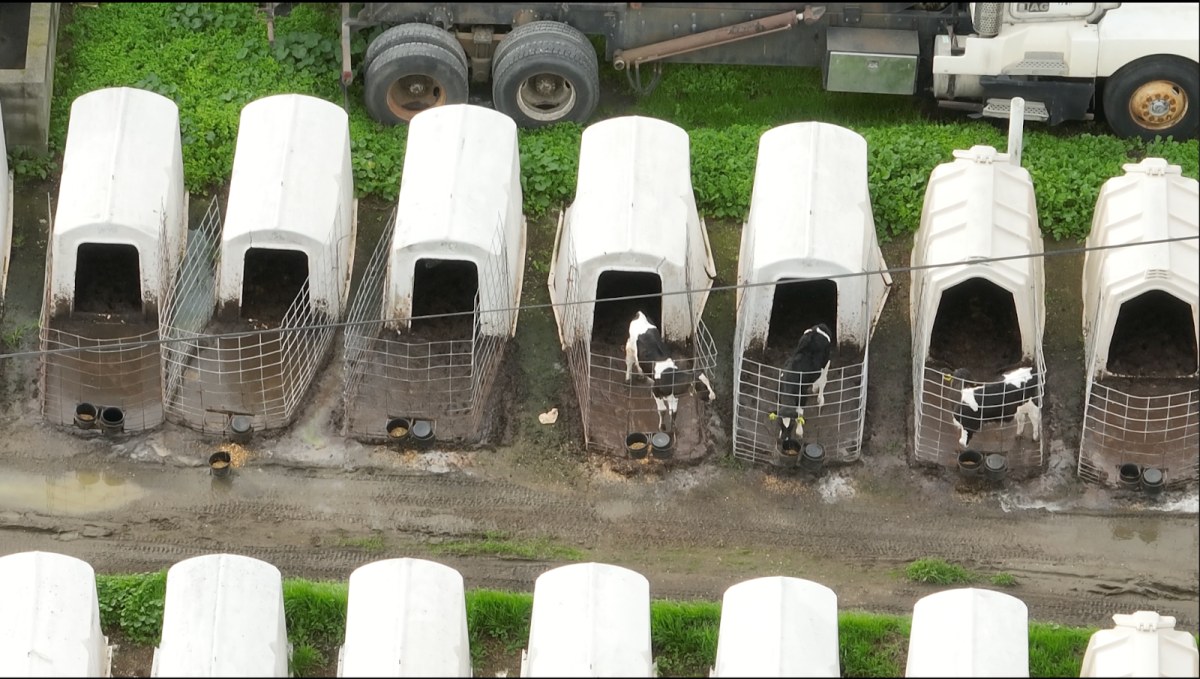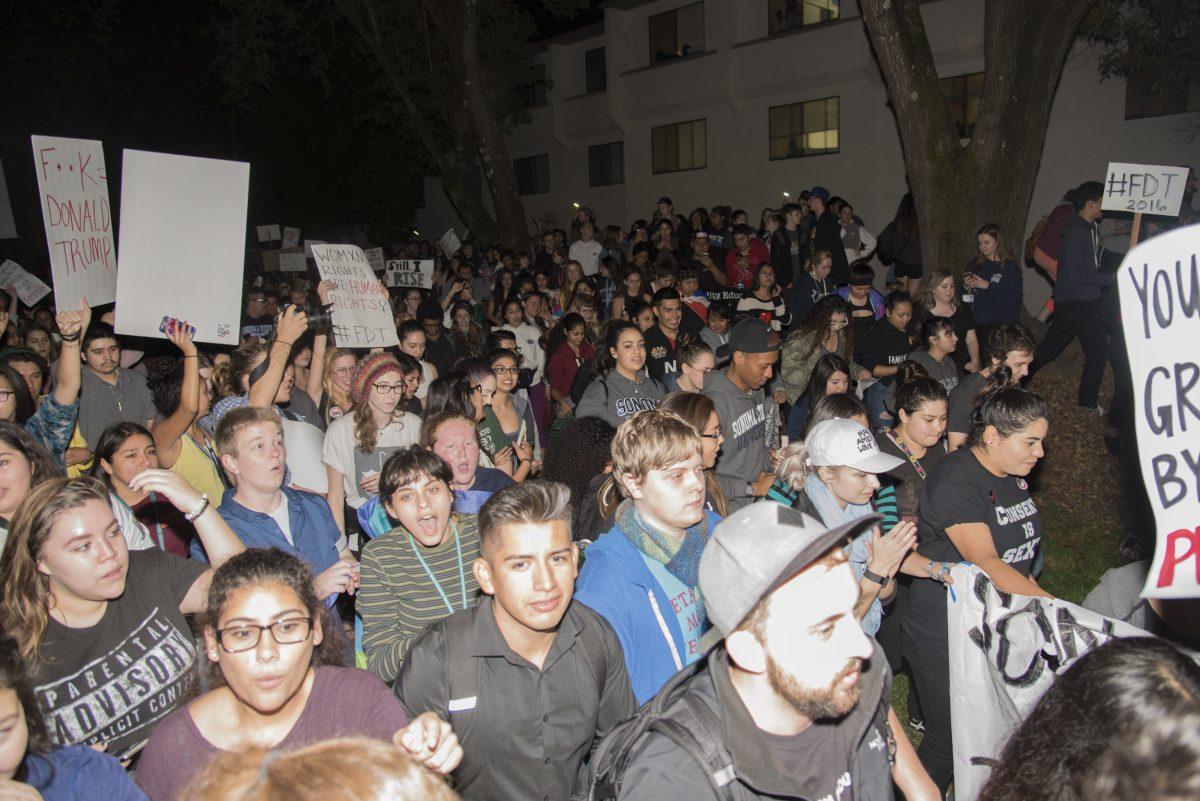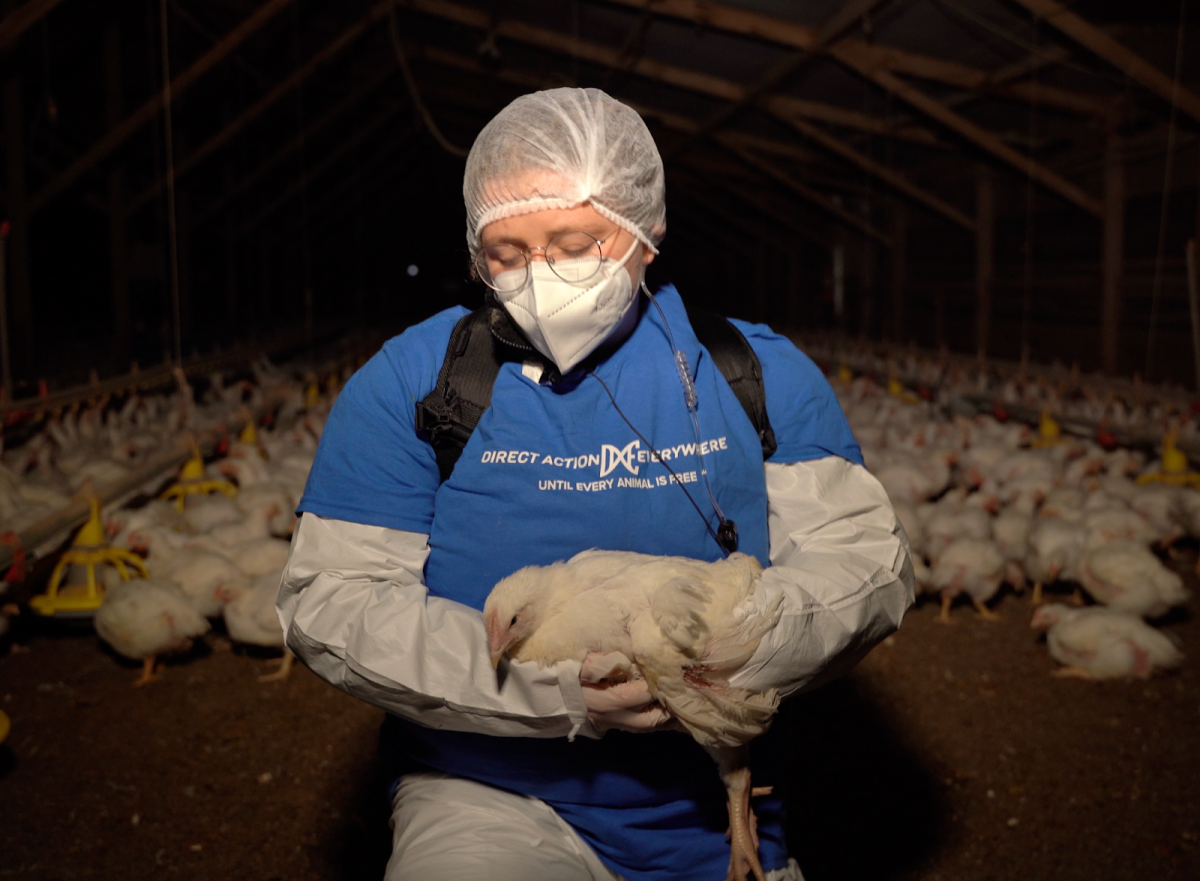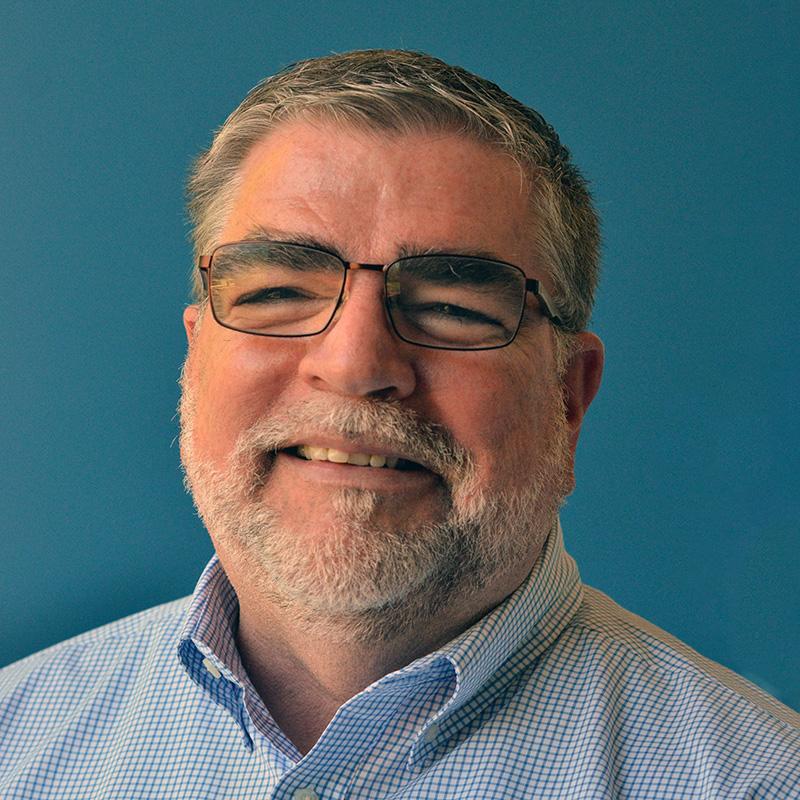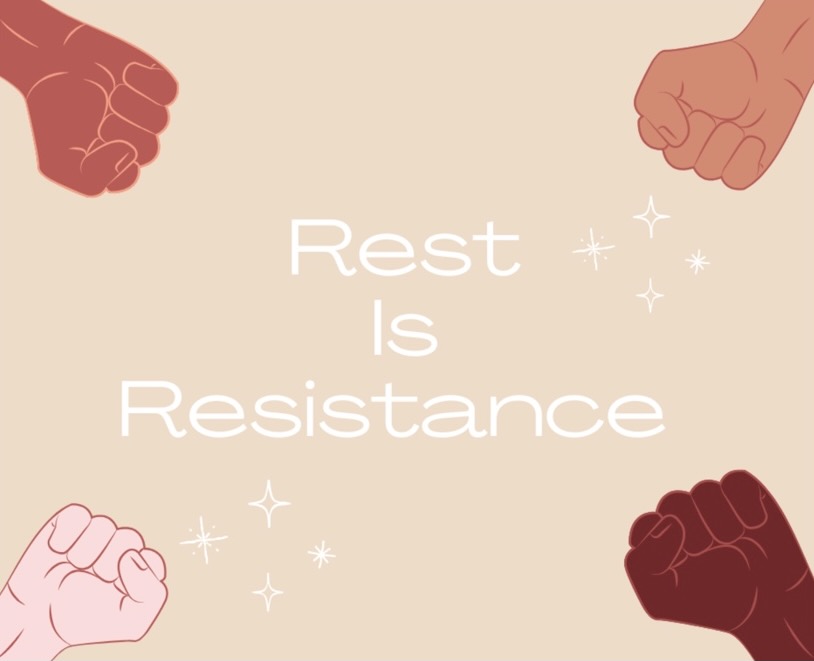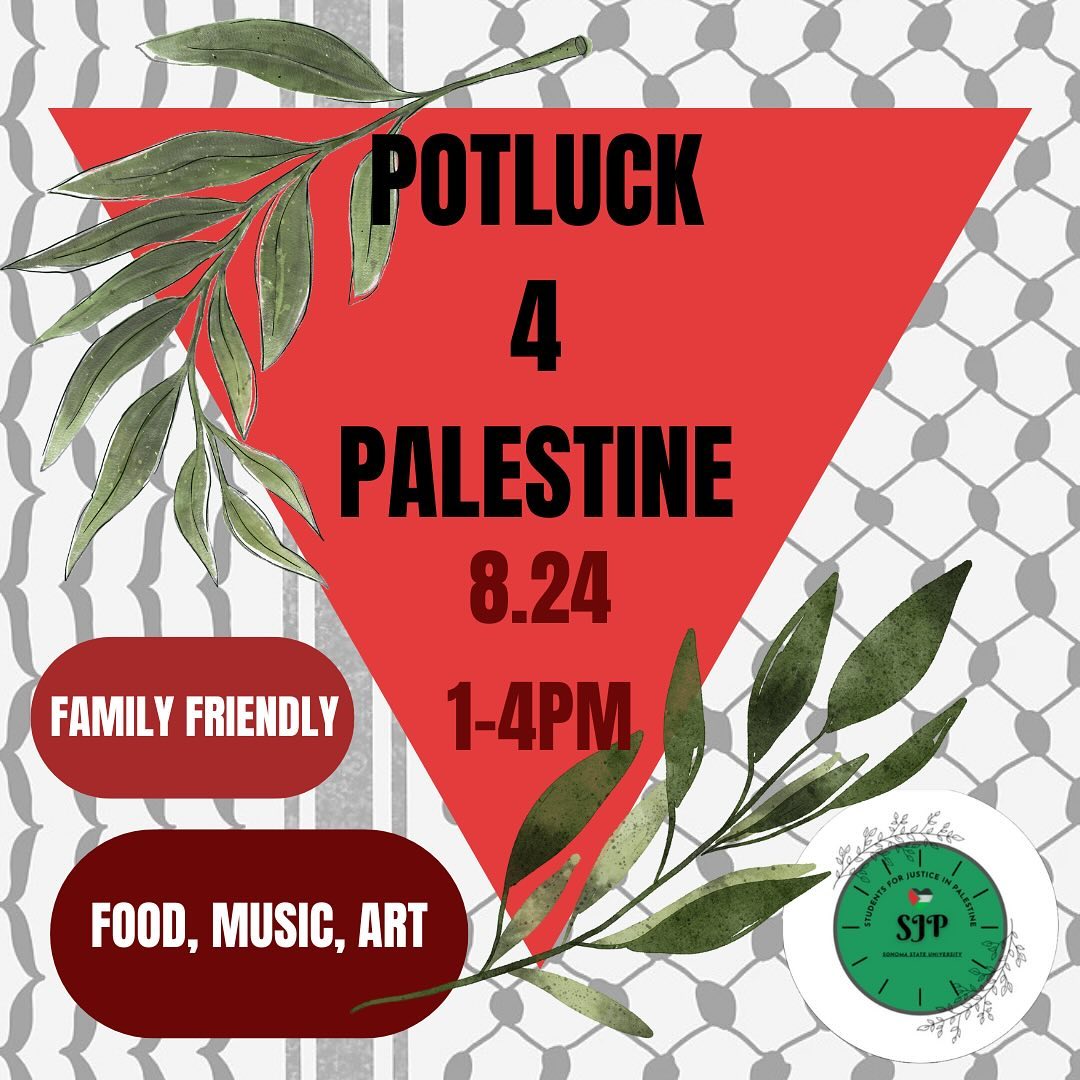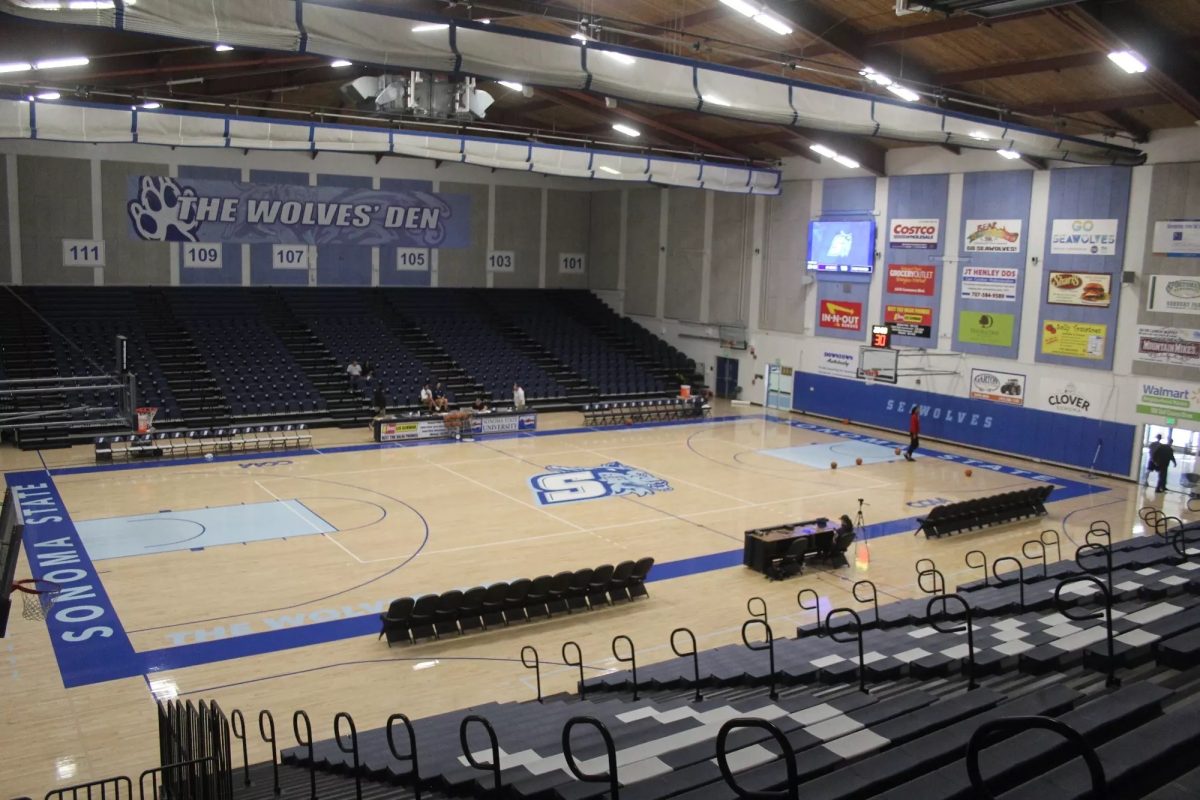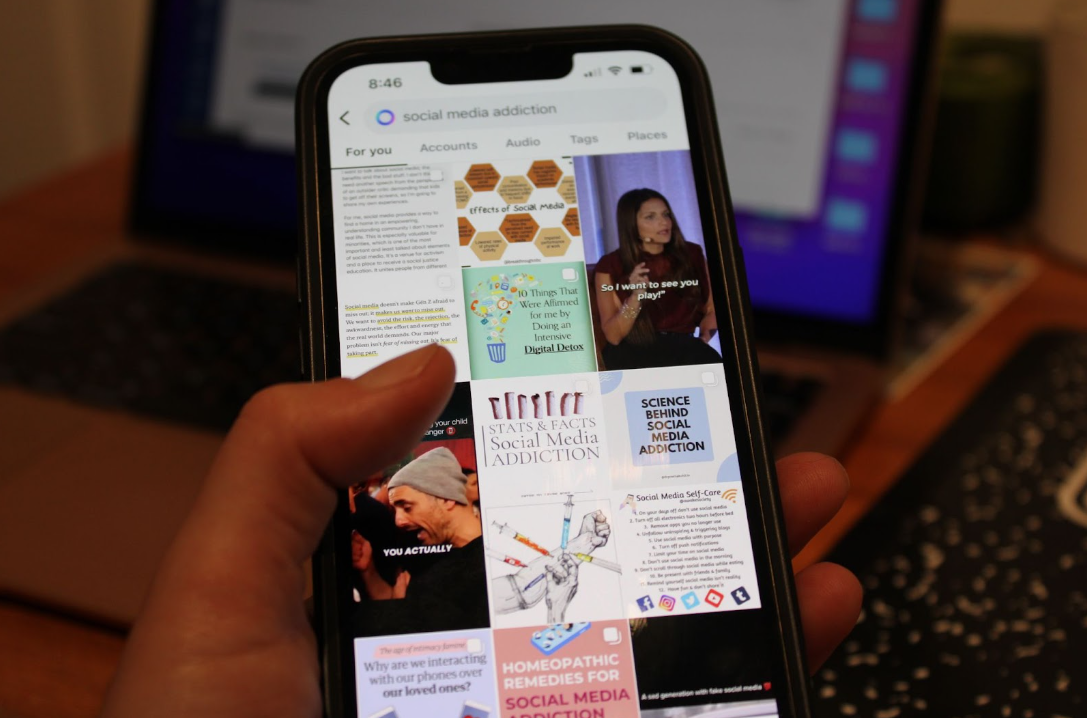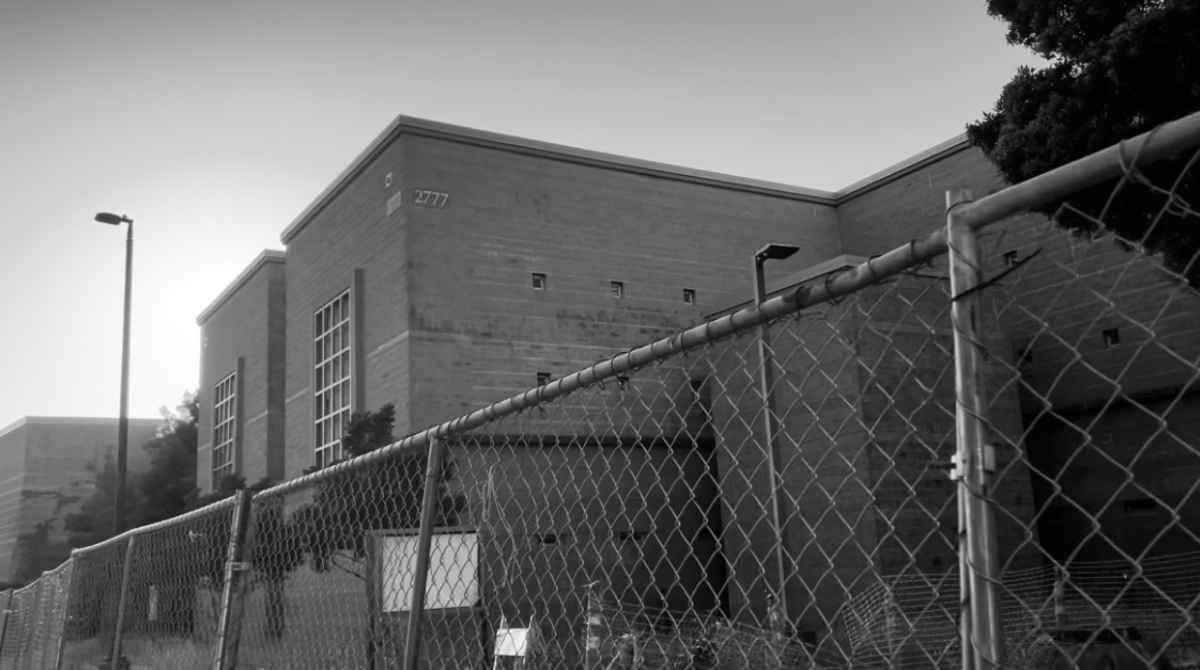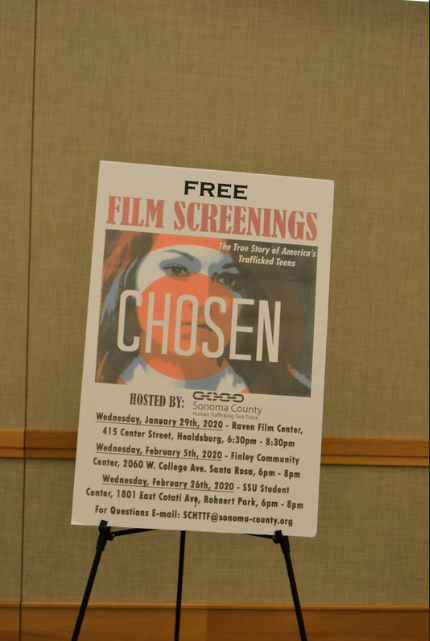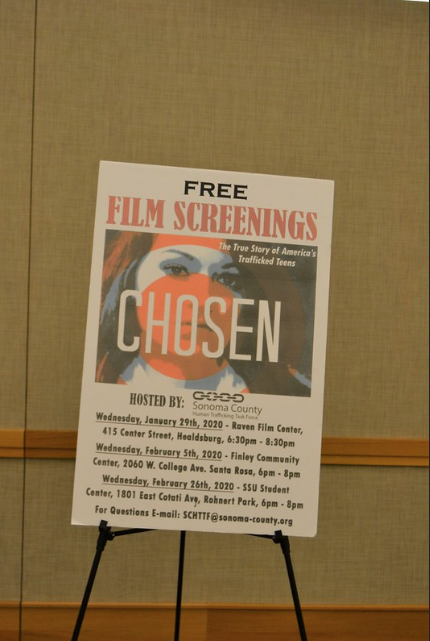A two-part documentary, “Chosen,” was screened in Ballroom A of the Student Center on the evening of Feb. 26. The documentary follows the stories of human trafficking survivors who were coerced into the sex ring. The screening was followed by a panel open to questions and discussion and was lead by experts on the topic of human trafficking. Among the experts was sex trafficking survivor and Sonoma State student, Elizabeth Quiroz.
“Most victims of sex trafficking don’t realize that they are victims,” said Quiroz during the discussion.
This is one of the reasons why Quiroz, along with other specialists and nonprofits, are working together to spread awareness.
“Communication is our most effective combatant against sex trafficking,” said Chief Deputy District Attorney, Brian A Staebell.
Human trafficking is more than a relevant topic among our student body and community.
“Here in Sonoma County, more than 200 cases of human trafficking have been filed by the District Attorney’s office since 2011,” said the Verity website. Verity is Sonoma County’s sole rape crisis, trauma, and healing center. Verity also attended the event and offered their resources.
“Even a student that comes from a good home can be a potential target for trafficking,” said Quiroz. Students who are struggling financially are considered “high risk,” Quiroz explained. These predators who come along can take the shape of anyone, as well as offer a wide variety of support that can be extremely tempting for someone who is struggling
In the documentary “Chosen,” one of the survivors’ predators was a charming college student who played basketball for his university. Someone who is lacking in love or attention is also at “high risk,” Quiroz explained. “Someone who looks completely innocent could come along and fill that void…you wouldn’t even notice that you were being groomed for trafficking,” said Quiroz
Students and community members alike attended the event. Everyone in the room was determined to know more about the abuse that disguises itself in the Seawolf community and Sonoma County at large. Important questions were raised on how to break the cycle of human and sex trafficking, and in response, insightful advice was given.
Seawolves who attended the event were touched and ready to make a difference– particularly, a group of students in the nursing program at SSU.
“It’s very effective to hear people’s experiences… As a health care provider, we could be these people’s only shot at getting out of this,” said nursing student, Ariana Jorstad.
During the panel discussion, Trauma Specialist Dr. Katherine Hargitt, pointed to research that suggests close to 90% of sex trafficking victims get in touch with health centers and clinics. Consequently, it is important to train all healthcare providers accordingly.
Stephanie Hamblin who is also a Seawolf nursing student said, “I think we live kind of in a bubble… It’s a whole different aspect of society that’s not really front and center, but as nurses, it will be.”
Similarly, another nursing student, Anique Langley, said, “Everyone’s experiences are different. As a healthcare provider, I feel that lots of women can come searching for help without knowing how. So, it’s important to be able to recognize those symptoms and have a comfortable conversation.”
Aside from becoming future health care providers, there are many ways students can get involved to make a difference. The first and foremost is to get educated. Know the signs of human trafficking and how it disguises itself within society. Nonprofits like Verity, and Quiroz’ Redemption House, are always open to donations and new volunteers. Students can also help by spreading awareness and continuing to shine light onto an abuse system that flourishes in the dark.
“A survivor is somebody that has worked through the trauma… and now uses their pain and story to help others and give back to the community,” said Quiroz.

